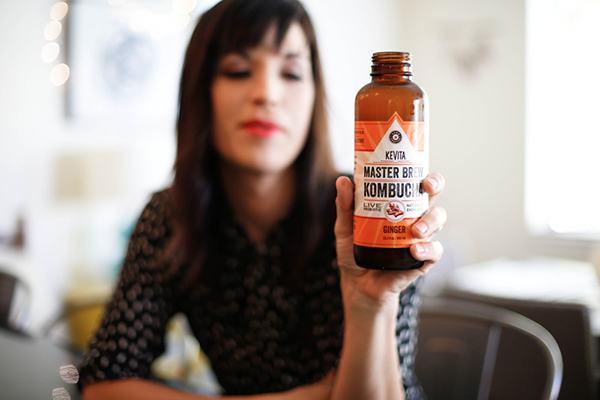
You took a break from your non-GMO, free-range, gluten-free, organic and fair trade diet to spend Thanksgiving Day having awkward conversations with family members and, of course, eating foods you swore you would never consume again. And while you will never admit it, you enjoyed all that grub, until you woke up on Black Friday morning and felt the aftershock to your system. No problem, you think as you grab that $5 bottle of kombucha in your fridge.
Well, the next time you stock up on kombucha or other probiotic drinks, the chances are high they will be PepsiCo products.
Last week, the beverage and snack foods giant acquired the popular brand KeVita, an Oxnard, California-based company that bottles kombucha, probiotic and apple vinegar beverages. The terms of the deal were not disclosed, but PepsiCo claims KeVita will become a subsidiary and continue to operate independently out of Southern California.
The PepsiCo-KeVita transaction is another step in an ongoing journey for the world’s largest beverage and food manufacturers. Soft drinks are being hit particularly hard as millennials find trendy new beverage products and consumers become more concerned about sugar content. Earlier this year, Fortune was one of many publications to point out that sodas have declined in sales for 11 consecutive years.
The results leave soft drink companies with no choice but to diversify their holdings and rebrand themselves as “lifestyle” and “nutrition” companies. Hence Coca-Cola purchased brands such as Honest Tea, and PepsiCo hopped on the bandwagon with acquisitions such as Naked Juice.
It’s curious that a company that defended its use of ingredients such as high-fructose corn syrup by preaching about science is now investing in a company pitching products with nutrition claims backed up by dodgy research.
Fans of kombucha touted a bevy of health benefits over the years, from its immunity-boosting powers to even helping people cope with the side effects of HIV/AIDS and cancer. Some even made claims about the drink being good for the libido and even causing hair regrowth. But at least one scientific study cast doubt on kombucha’s benefits versus its health risks; and in 2013, a spokesperson for the Academy of Nutrition and Dietetics told National Public Radio that little evidence exists that supports the health claims of kombucha.
Any health benefits of kombucha, along with other acclaimed probiotics such as apple cider vinegar, come from the live bacteria that thrive in these products. More preliminary evidence suggests probiotics, as in the bacteria found in yogurt, offer a wide range of health benefits.
DIY kombucha is now becoing more popular, as making the 2,000-year-old drink requires a relatively simple process. One just needs to tend to a SCOBY (symbiotic culture of bacteria and yeast), a glob of microorganisms that at times looks like a badly misshapen flan or a human brain. The problem, however, is that not everyone is skilled enough to grow such a beast in their kitchen. Using the wrong kind of container, such as glazed pottery, can leach toxins. And then there is the risk of the wrong type of bacteria thriving, which can cause health problems.
Hence the popularity of bottled kombucha drinks, which often are more palatable than what can be made at home; but they are often weaker than the home-brewed options, largely because they contain only trace amounts of alcohol. (Remember, this is a fermented brew, or in other words, booze.) You may not get as many of those “benefits” as you would from a homemade concoction, but since it was purchased at a supermarket, the odds are that it is much safer. And judging by the price point, these probiotic drinks are highly profitable.
As Americans continue to avoid sugary and artificially-sweetened drinks, companies like PepsiCo have no choice but to purchase brands such as KeVita if they want to stay viable in the long run. So look out for more of the same.
Image credit: Kevita

Leon Kaye has written for 3p since 2010 and become executive editor in 2018. His previous work includes writing for the Guardian as well as other online and print publications. In addition, he's worked in sales executive roles within technology and financial research companies, as well as for a public relations firm, for which he consulted with one of the globe’s leading sustainability initiatives. Currently living in Central California, he’s traveled to 70-plus countries and has lived and worked in South Korea, the United Arab Emirates and Uruguay.
Leon’s an alum of Fresno State, the University of Maryland, Baltimore County and the University of Southern California's Marshall Business School. He enjoys traveling abroad as well as exploring California’s Central Coast and the Sierra Nevadas.














